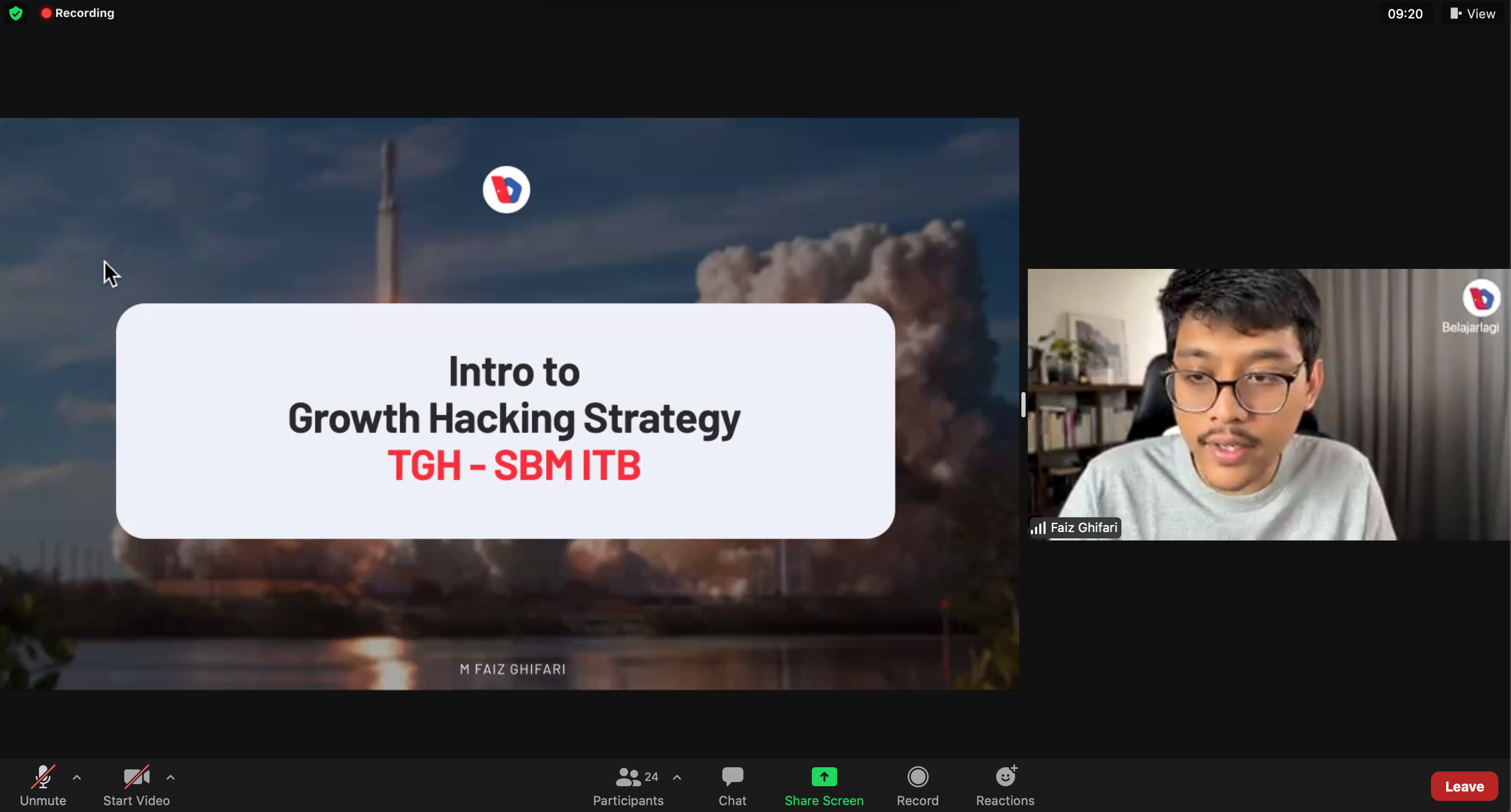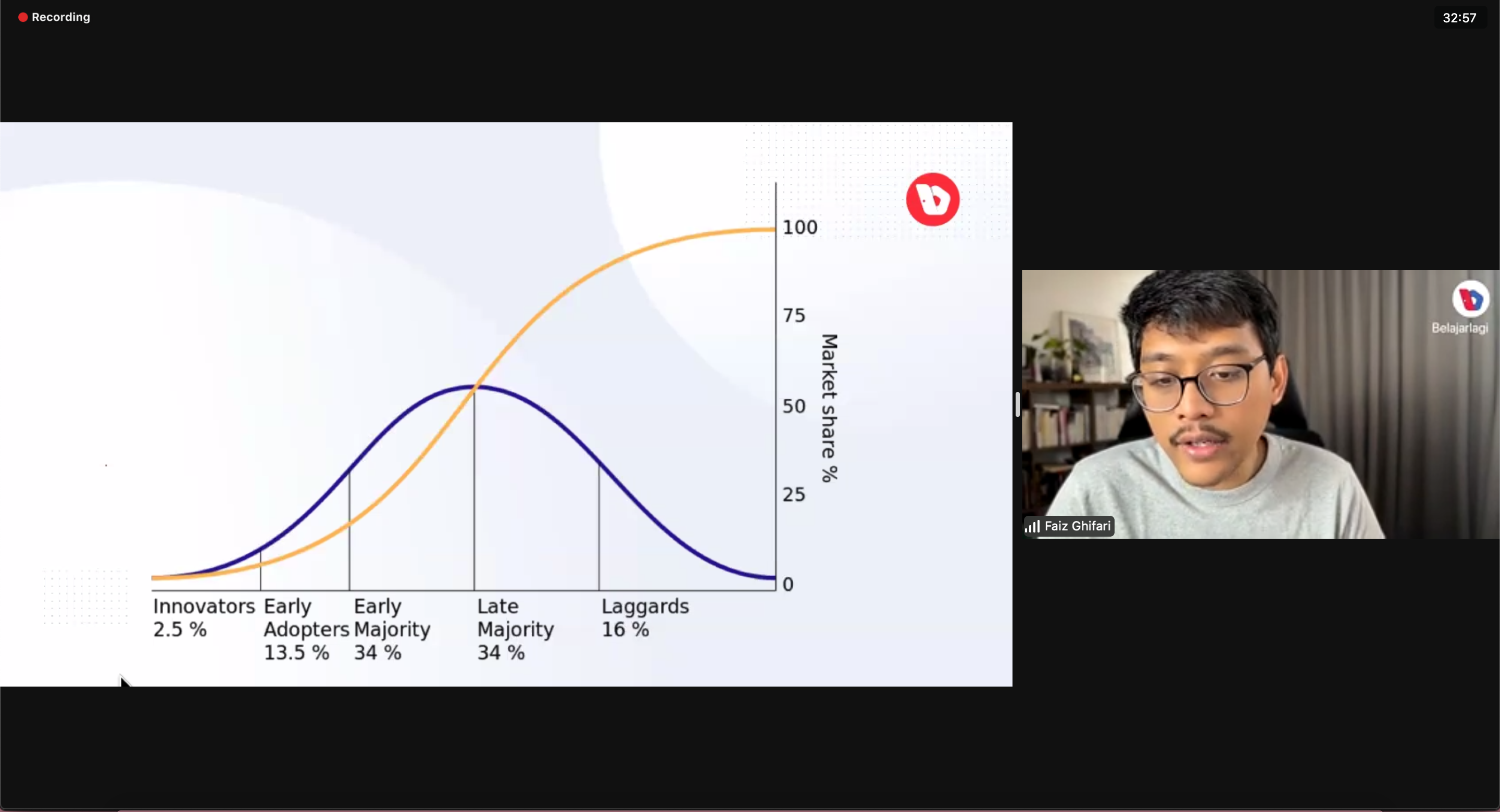Growth hacking is one effective strategy in growing businesses, especially for startups. To learn how to take full advantage of it, The Greater Hub invited Faiz Ghifari, the founder of Belajarlagi, to share growth hacking in a discussion session entitled “Get To Know: Growth Hacking Strategy”.
 According to Faiz, growth hacking is a concept focusing on the company’s rapid growth. This concept is very relevant for startups because, by definition, startups are hyper-focused on growth. As an example, if a company grew by 1% every week, the company will expand 1.7 times by the end of the year. If the growth rate increases to 5% per week, the company will expand 12.6 times.
According to Faiz, growth hacking is a concept focusing on the company’s rapid growth. This concept is very relevant for startups because, by definition, startups are hyper-focused on growth. As an example, if a company grew by 1% every week, the company will expand 1.7 times by the end of the year. If the growth rate increases to 5% per week, the company will expand 12.6 times.
“The numbers may seem small, only 1%, 5%, but it can make a huge difference. Therefore, even the smallest growth in startup matters,” said Faiz, emphasizing the importance of continuous growth for startups.
However, Faiz also reminded startup founders to prioritize product quality before focusing on growth. He argued that it is difficult to compensate for losses if the products are not good because many alternatives are available in the market. In addition, improper product-market fit can also affect the sustainability of startups in the long term. Growth hacking and product are both critical, but it is better to prioritize product development as the basis for growth.
Faiz believes that two mindsets are necessary in growth hacking. The first is to continue to seek feedback from users and iterations because the nature of growth hacking is very data-driven. Faiz gave Instagram as an example. Instagram considers feedback from their users who like photo sharing and filter features, then transforms from their initial concept to become what they are today and is experiencing rapid growth.
The second mindset is not to target everyone with growth hacking. Startups have limited resources; thus, it is impossible to target the mass majority. Faiz suggested focusing on the innovator and early adopter segments because these segments are the people who most need startup products. In addition, this segment also tends to be loyal and can be an extension of marketing through word-of-mouth or referrals.





